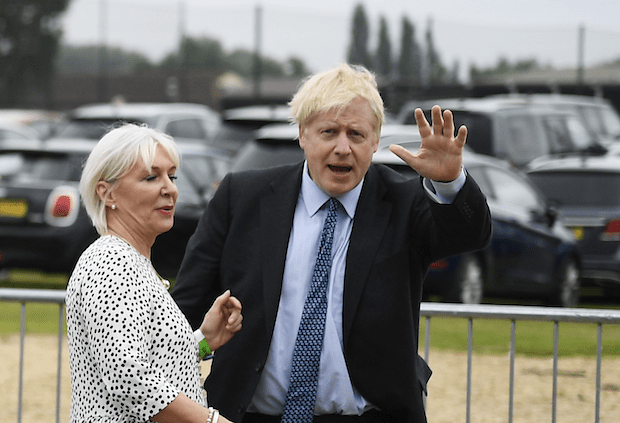Westminster is abuzz this morning not with anticipation for Rishi Sunak’s first Budget but over the news that Nadine Dorries has become the first UK politician to contract the coronavirus. The health minister began to feel unwell at the end of last week before showing symptoms relating to the coronavirus – dry cough, high fever and chest pains – at the weekend. She has since tested positive for the disease and self-isolated. However, before doing so, Dorries was in contact with hundreds of people including fellow politicians at a No. 10 reception the Prime Minister hosted on Thursday, health officials and constituents in a surgery on Saturday.
While Dorries believes she is now on the mend, the case has inevitably raised questions over the government’s current approach to the virus as well as the immediate repercussions for Westminster. The Department of Health is tracking those who may have been in recent contact with Dorries. The official advice is that MPs should go to work as normal but in recent weeks there have been reports of emergency plans drawn up which could see parliament closed until the summer and beyond in order to stem the spread of the disease. The trigger for this is that politicians are in theory particularly susceptible to contracting and spreading the disease given that they travel a lot and meet with many people in an average week.
In the wake of Dorries’ diagnosis there have been fresh calls for parliament to be suspended. However, Coffee House understands that such a drastic measure is unlikely. More likely is that access to the parliamentary estate will be limited to visitors. This is for a handful of reasons. Firstly, officials do not believe this would necessarily prevent the spread of the disease and secondly if parliament shutdown it would send a signal that other workplaces ought to follow suit. For now at least, the government takes the view that a general shutdown of cities and the country – as is underway in Italy – would be more disruptive than helpful with regards to containing the spread of the disease. This is partly because of the implications it would have on NHS staff and emergency services. There may come a point in the future when the government does put a ban on mass gatherings but we are not there yet.







Comments